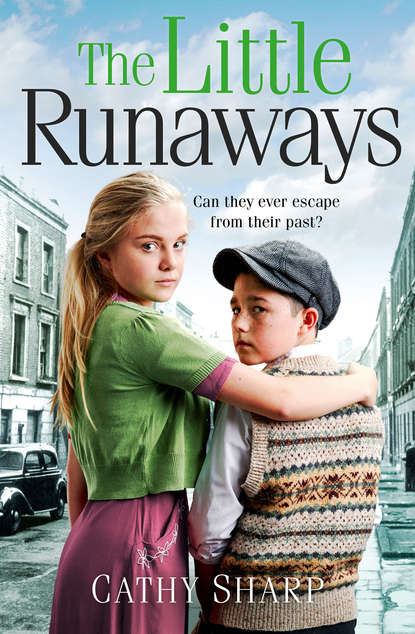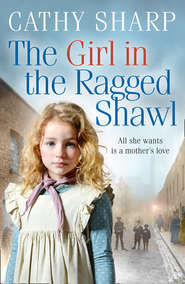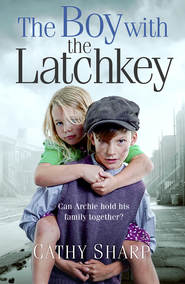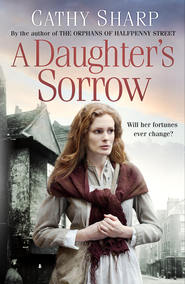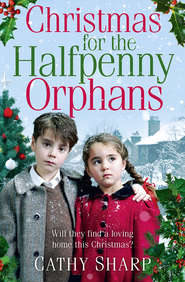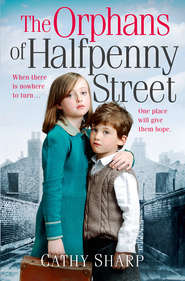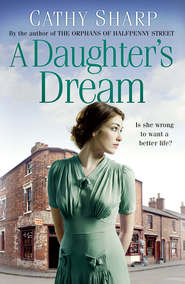По всем вопросам обращайтесь на: info@litportal.ru
(©) 2003-2024.
✖
The Little Runaways
Настройки чтения
Размер шрифта
Высота строк
Поля
Men were unreliable and selfish, and apart from using them to further her ambitions, Carole was opting to focus her efforts on building her career – in her own way. Sister Beatrice was getting on a bit and old-fashioned. An intelligent nurse such as herself could work hard and find a way to make herself indispensable so that when the old harridan retired in a few years she would be the natural successor.
Carole fixed her cap at the precise angle, smoothed her uniform and left her room, locking the door behind her.
It was chilly as she walked to the children’s home through the connecting gardens. St Saviour’s was almost unique in having more than a back yard in this area of London, but it was a relic from the past, when the house had been an impressive early Georgian mansion – and then later a hospital for contagious illness. Similar buildings had grown up all round as the area was peopled with silk merchants, and then the Jewish immigrants who had taken over the streets around St Saviour’s when the rich merchants had moved up West. The house had been used as the old fever hospital until it was closed in the early 1930s, but since then many of the Jewish synagogues and shops in the area had been replaced and there was a mixture of cultures and peoples working and living in the narrow dirty streets. St Saviour’s had become a home for children in need during the war, and the house the nurses occupied was what had once been a rather grand home for the Warden of the fever hospital.
Carole was surprised that the buildings here had survived the bombing in the war. The surrounding streets were filled with large empty spaces overgrown with weeds and neglected, awaiting renovation. In Bethnal Green several bomb sites had been turned into gardens and small allotments for the local residents; here the ruins were just left to decay while local children made a playground from the ruins of their former homes. The Government was going to build houses and shops to replace those lost in the war, but because of the shortage of building materials they were instead putting up prefabricated bungalows and they were dotted here and there amongst the decay and destruction; some had been built further out from the centre, where the air was fresher. Londoners were starting to drift out to the suburbs with the promise of new homes and a better life. From the outside St Saviour’s looked grubby like the rest of the buildings in the area, though inside it was as clean as Sister Beatrice could persuade her staff to keep it.
Most of the girls here were all right. She quite liked Staff Nurse Michelle, though she hadn’t seen much of her, but she was an East End girl and didn’t seem a threat to Carole’s ambition. Angela Morton was a different matter; she wasn’t sure whether she liked Mrs Morton or not, because although she was always friendly there was something about her – something that made Carole sense a rival.
Carole hadn’t yet worked out what Angela’s role was here. She talked of herself as being the odd-job lady, but she carried authority, speaking with a confident smile and amusement in her eyes. Everyone seemed to like her – at least Nan spoke very highly of her and Sally Rush seemed to think she was wonderful. Nan was a surrogate mother to the children, helping with everything, from washing them to giving them hot drinks in the night, taking them to the toilet if they couldn’t manage, or out on school trips. She was the lynchpin of the home and she seemed to be in Sister Beatrice’s confidence. But Nan wasn’t an ambitious person and wouldn’t think of herself in the position of Warden – though Angela Morton might.
Yes, she would bear watching, Carole thought as she let herself in through the back door and went along the rather dark corridor to the dining room, where breakfast was still being served. Helping herself to coffee and a piece of toast with a scraping of what looked suspiciously like margarine and a spoonful of marmalade, she sat down at the table reserved for nursing staff.
Most of the children had already eaten and were leaving the tables in an orderly fashion, under the eye of some of the senior children: new monitors that Angela had appointed since Christmas, so Carole had been told. Sally Rush was gathering the smaller ones, preparing to take them to wash their hands and jam-smeared faces. She saw Carole and nodded to her in a friendly way. Sally was all right; Carole had already marked her down as harmless.
Carole glanced at the little silver watch pinned to her uniform. She had another fifteen minutes before she was due on duty, but she might as well go up to the wards and look in on the new arrivals. Being early for work was always a good way to impress and she wanted Sister Beatrice to think well of her, because she knew she was still on probation as far as the crusty old nun was concerned. She was wed to her order and her religion and had probably never had a man in her life; at least that was Carole’s guess. Her whole life revolved around St Saviour’s and the children. Carole would never be like that; even if she did stay on to become Warden, she would never let her job become her whole life. No, she wanted it all and she intended to get whatever she could out of her present position.
Patting her mouth with the napkin, she stood up and straightened her uniform and then walked briskly from the dining room, almost colliding with a young red-haired boy who was running as if his life depended on it. She grabbed hold of his arm to steady him as he almost fell over in his efforts to avoid knocking into her.
‘Sorry, Nurse,’ he said. ‘I was in a hurry to catch up with Mary Ellen – you won’t tell on me, will you?’
‘You must be Billy Baggins,’ Carole said with a frown. ‘I’ve heard about you. You’re the little rebel. You really should start looking where you are going, but no, I shan’t tell on you – this time; just don’t do it again.’
‘Thanks, Nurse.’ Billy grinned cockily and walked nonchalantly away.
Carole guessed he would run as soon as he was out of view, but why should she care? She smiled, because she was a bit of a rebel herself and always had been. Perhaps it came from being the youngest of a clever brood and always the last to know what was going on in the family home. Not that she had much family now: the war had seen to that, taking her father and two elder brothers and leaving her with just her sister, Marjorie, and her mother.
Just as she reached the top of the stairs she saw a man come from Sister Beatrice’s office. He walked towards her, stopping to smile as they came face to face outside the sick bay, and then he offered his hand. Carole noticed at once that his hand was strong and assured as he clasped hers firmly; on the little finger of his right hand he wore a solid gold signet ring.
‘I’m Mark Adderbury,’ he said. ‘You must be Carole Clarke, the new staff nurse. Sister Beatrice told me about you. I’m glad to meet you, Carole.’
‘Yes, I’ve heard a bit about you too.’ Carole gave him the special smile she reserved for men who passed the test, and he did with flying colours. Good-looking, mature, rich and intelligent, he had all the necessary qualities – but what was he like as a man? ‘You visit the disturbed children, I think?’
‘Yes, that’s my job, but I’m interested in everything that goes on here and all the children. St Saviour’s gives hope to children who had none when they were brought here, Carole. I think helping a place like this to exist is the best job in the world.’
‘Yes, of course,’ Carole said, groaning inwardly. Not another man bent on a mission! She didn’t want to dedicate her life to good causes, unless there was something in it for her. Yet Mark’s smile was rather enticing and she decided to let the jury stay out for a while on this one. She wouldn’t mind getting to know him better before she wrote him off. ‘I do enjoy working with children; they are much easier than adults, I think. Elderly patients complain all the time and the younger men never do as you tell them.’ She gave a soft laugh to show that she was teasing and saw the flicker of appreciation in his eyes.
‘Yes, I imagine so, though I work with all ages. This is my pleasure in a way, though I wouldn’t want you to imagine that I have no other interests – good music, the theatre, dancing, books …’
Carole raised her eyes to his, seeing the sparkle there. Just the sort of things in life she liked herself – but was he taken?
‘I expect you and Mrs Adderbury have a wonderful social life …’
‘We had one, but my wife died some years ago.’
‘I’m sorry to hear that,’ she said, though she felt quite the opposite at the news he was a widower.
‘Thank you, but I have a pleasant life and lots of friends,’ he murmured.
Carole felt a spurt of annoyance. Did he mean women friends? Men usually fell at her feet, but Mark Adderbury showed no sign of following the herd and that aroused her hunting instincts – better to keep him keen.
‘Gracious, look at the time,’ she said, though she was still early. ‘It was nice meeting you, Mr Adderbury, but I must fly.’
‘Oh, Mark, surely,’ he said, calmly. ‘But I mustn’t keep you waiting and I too have to hurry …’
Carole could feel her heart racing as she went into the sick ward. She rather liked him, even if he did look at her as if she were a charming child rather than the exciting woman most men seemed to think her …
‘Oh, you’re early,’ Nurse Paula said as she entered. ‘Good, I can tell you the latest and then get off.’
Carole nodded and smiled. ‘I just met Mr Adderbury. He seems very nice?’
‘Yes, I suppose he is. I’ve hardly spoken to him, other than about the children. He and Angela Morton are good friends, I think – not that there’s anything in it. Sally says she still loves her husband: he was killed in the war …’
‘Lots of us lost loved ones in the war, my fiancé, father and brothers were all killed,’ Carole said without blinking. ‘But some of us choose not to wallow.’
‘What rotten luck, to lose so many men in your family. I can’t imagine how that feels,’ Paula said, looking sympathetic. ‘When I’m not on nights we might go to a film together sometime?’
‘What about your boyfriend?’
‘I don’t see Fred all the time,’ Paula sighed. ‘I used to go out with Sally sometimes, but she doesn’t have time these days.’
‘Oh, that’s a shame,’ Carole said. It was always best to make allies but she’d no need to commit herself at this point. Something better might come up − she thought again about Mark Adderbury. ‘Now, shall we look at what’s been happening? What about the new arrivals?’
‘Medically, they seem all right now; they were not much affected by the smoke, because Nancy got her brother out quickly – but the boy is difficult; he just stares vacantly, though I’m sure he knows what I say.’
‘Still in shock, I suppose, though he can talk when he likes. Has Mr Adderbury visited them?’
‘Yes, a little while ago. He said the girl was the best judge of her brother’s behaviour and very good at handling him; he advised me to just leave him for now and hope that he comes out of it – but he never tells us nurses more than he thinks we need to know.’
‘Well, all we can do is to keep an eye on Terry,’ Carole said. ‘If he is calmer now we shall not need to sedate him. We must just let his sister look after him and wait until he recovers. It was a terrible thing – to lose both parents in that awful fire.’
‘Yes, horrid,’ Paula agreed but frowned. ‘I don’t know why but that boy gives me the shivers. I wish they could be moved into one of the dorms.’
‘Don’t be foolish, Nurse,’ Carole said briskly. ‘Terry is just a child and he’s been through an ordeal. You must learn to make allowances.’
SEVEN (#ulink_caa083a3-23fa-5cd5-99c3-ced031abb1da)
Nan walked through to the hall of her small prefabricated bungalow and picked up the envelope the postman had just delivered. She’d been fortunate to get this place, having been bombed out twice during the war: the first time she’d lost almost everything, recovering only a few precious photographs and papers that were saved from the fire because she’d kept them in a biscuit tin, which miraculously survived under the rubble. The second time she’d merely had a room in a terraced house, sharing with three other families, and she’d been lucky, because it was the house next door that took the direct hit and she’d had time to pack a few things before the wardens came and moved everyone out as the fire spread. The powers that be had rehoused her here after the end of the war and she was gradually turning her little bungalow into a home.
She took the letter into the warm kitchen. These prefabs were not popular with everyone, because outside they looked a bit soulless, but the fortunate tenants loved them. The kitchens had modern electric fittings and hers had a nice closed-in stove that she could cook on and kept a steady temperature; the rooms were also warmed by coal fires and a copper boiler heated the water and provided a bath whenever she needed one. Nan thought she’d landed in heaven the first day she moved in. God knew, her life had never been easy, but at least here she was warm and comfortable and she only had herself to worry about … Well, that wasn’t strictly true, of course. She worried about Maisie in that place – but she was a fool to let herself think about things that distressed her. It was her daughter’s choice and Nan had to accept it, as Beatrice had told her when it all happened.
‘The girl has a right to her own life, Nan,’ her friend had said as they talked over a cup of tea. ‘We’ve both suffered tragedy, and you know as well as I do that we just have to get over it. You have a home and you have a decent job – and if Maisie is happy where she is …’
‘I know it has to be her decision after what happened to her,’ Nan agreed. ‘I don’t want to force anything on her, but I wish she would talk to me – she won’t even see me, Beatrice. She blames me for what he did …’
‘She’s wrong to blame you, Nan. It wasn’t your fault. After you lost your Sam and the boy – you had no choice but to take in lodgers.’
Nan felt a choking sensation in her throat. She’d been lost in her grief after her husband and her son, Archie, had both died of the typhoid fever. Maisie had been just a child of twelve then, and perhaps she’d neglected her – she must have done something wrong or Maisie wouldn’t have turned against her, because Nan couldn’t have known what that filthy brute had on his mind.





